If you aren’t quite ready for the holiday season, don’t stop reading. I’m not either. I do, however, have several great cookbooks to review for you that just might get you thinking about gifts for your foodie friends even if that foodie friend is yourself. So I’m beginning a series that will extend through December – Cookbooks for Christmas. If holiday celebrations aren’t a tradition in your house, these books can certainly work for any occasion. As I keep telling my husband, it’s impossible to have too many cookbooks!
When I learned that The Fundamental Techniques of Classic Bread Baking from The French Culinary Institute was available I jumped at the chance to get a copy. Why? Because I need it. Not want it, but desperately NEED it.
Bread and I go way back, but as I’ve mentioned before I can never seem to master exquisite skill at home.
I worked in a bakery for several years. In addition, to customer service and sales, I was the go-to nutrition and ingredient person. Every time a question was asked such as, “How many calories, carbs or protein are in this type?” or “What are the grains in this one?” It would be followed by my coworkers turning to me and saying, “Lori?”
I could rattle off grams and kilocalories followed by an extensive list of grains. Not sure why this type of information sticks with me, but it has a lot to do with why I studied nutrition. Everyone has their thing, and for me, food and nutrition just clicks.
When it came to the actual bread, I was on the oven side of things. Someone else prepared the sponge and dough, while I worked on the kneading team and eventually became a baker.
So…I can definitely shape your loaf and tell you when your bread is done baking.
What I struggle with is measuring your ingredients and making your bread rise correctly.
See, I needed this book.
I haven’t been exposed too much in the way of professional culinary training, speaking specifically about the training provided in this cookbook. This book is science – the flour, the yeast, the sugar. The role of all ingredients required for baking the perfect loaf of bread are explained.
The truth is it might overwhelm someone new to baking. That being said, it also contains essential information that someone new to (or familiar with) baking needs to know. So, I say, take a chance and help educate.
In addition to the abundant information about baking terminology, tools, shapes, cuts and techniques are the recipes. Sigh. The recipes.
French, German and Italian recipes. The real deal with gorgeous photos to accompany many.
Some I was familiar with such as Challah, Rye, Stollen and Panettone . Others were new discoveries like La Mouna, Pane Siciliano Semolina and Landbrot mit Sauerkraut. The last section even covers some gluten-free varieties.
I decided to select one that was fairly straight forward and simple to start with – Pain de Mie Complet.
The process itself could not have been easier. It can be made in a weekend afternoon with little else than letting it rise the appropriate amount of time.
And back to that rising thing.
The result? I really like the flavor of this bread. We’ve been using it for grilled sandwiches and toast this week. I’ll be making it again, along with several other recipes from this book.
However, my result was far from perfect. I needed a bit more puff to my loaf, but otherwise we ended up with a delicious bread. And of course, now I have an excuse to make it again.
Pain de Mie Complet
Reprinted with permission from Abrams Books
Makes 2 loaves
Estimated time to complete: 5½ hours
Improved mix
Desired dough temperature (DDT): 75°F (25°C)
Ingredients
Bread flour 276 grams / 9¾ ounces (Baker’s Percentage 50%)
Fine whole wheat flour 276 grams / 9¾ ounces (50%)
Water 359 grams / 122⁄3 ounces (65%)
Powdered milk 22 grams / ¾ ounce (4.06%)
Unsalted butter 28 grams / 1 ounce (5%)
Cool heavy cream 17 grams / 2⁄3 ounce (3%)
Salt 14 grams / ½ ounce (2.5%)
Fresh yeast 8 grams / 1⁄8 ounce (1.56%)
Total 1000 grams / 2 pounds 31⁄3 ounces (181.12%)
Oil for greasing bowl
Flour for dusting
Butter for greasing pans
1 large egg for egg wash
Equipment
Scale
Digital thermometer
Standing electric mixer fitted with the hook
Large bowl or container
Bowl scraper
Plastic film
Two 9-inch loaf pans
Small bowl
Whisk
Pastry brush
Wire racks
Prepare the mise en place, taking care that the cream is about 60°F (15°C).
Combine the bread and fine whole wheat flours with the water, powdered milk, butter, heavy cream, salt, and yeast in the bowl of a standing electric mixer fitted with the hook. Mix on low speed for about 4 minutes, or until blended. Increase the mixer speed to medium and mix for about 8 minutes, or until the dough is smooth and almost shiny. Check the gluten development by pulling a window. Lightly oil a large bowl or container.
Scrape the dough into the prepared bowl. Cover the bowl with plastic film and set aside to ferment for 1 hour.
Lightly flour a clean, flat work surface.
Uncover the dough and divide it into two 500-gram / 18-ounce rounds on the floured surface. Cover with plastic film and bench rest for 15 minutes.
Lightly butter two 9-inch loaf pans.
Uncover the dough and, if necessary, lightly flour the work surface. Gently press on the dough to degas and carefully shape each round into a bâtard. Place each bâtard into a prepared loaf pan, seam side down. Cover with plastic film and proof for 90 minutes.
About an hour before you are ready to bake the loaves, preheat the oven to 350°F (177°C).
To make the egg wash, combine the egg with 14 grams / 1 tablespoon water in a small bowl, whisking to blend.
Uncover the dough and, using a pastry brush, lightly coat the top of each loaf with the egg wash.
Transfer the loaves to the preheated oven. Bake for 35 minutes, or until the crust is golden brown and shiny and the sides are firm to the touch.
Remove from the oven. Then, turn the loaves from the pans and transfer to wire racks to cool.
Disclosure: A review copy of this cookbook was sent to me free of charge. I was not required to post about it and received no compensation for doing so.

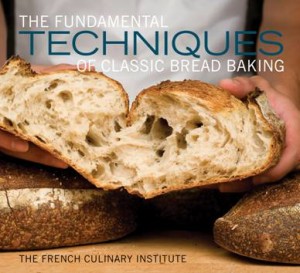
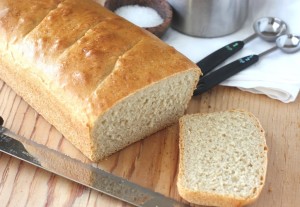
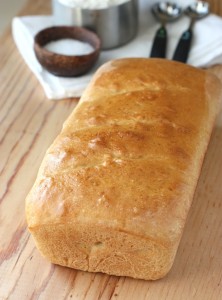
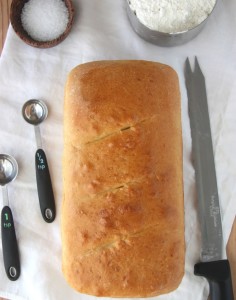
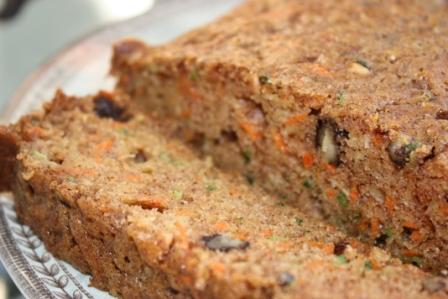
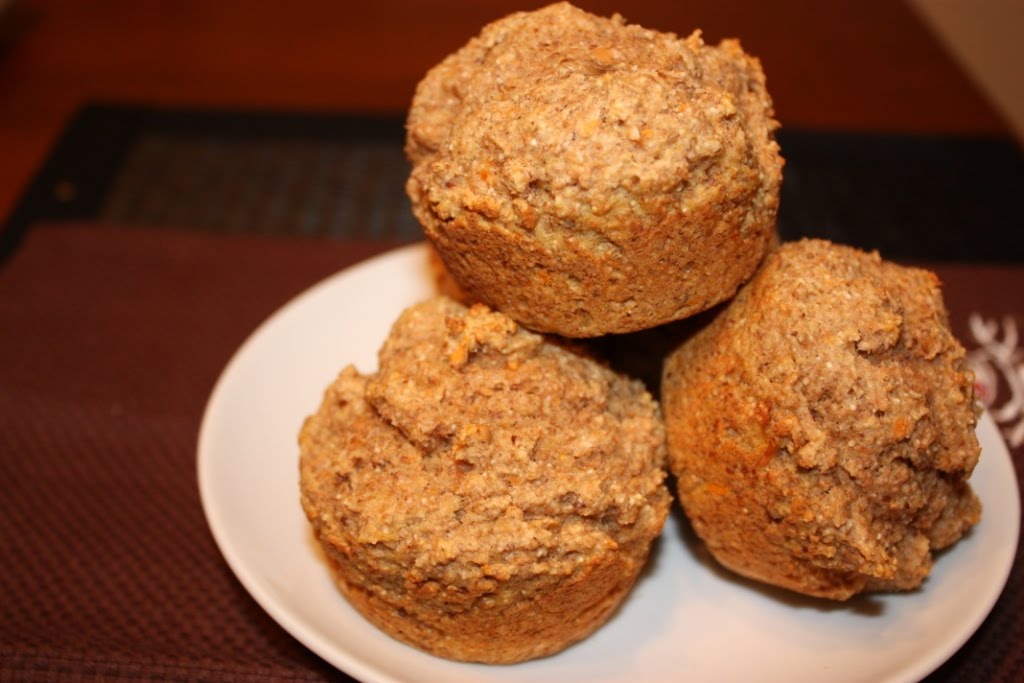

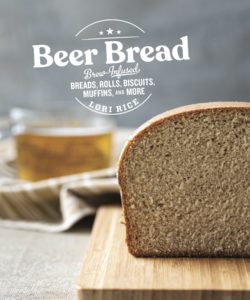
I would definitely LOVE to hone my bread baking skills so I’ll definitely look into getting this book! Your pain de mie looks so pretty!
Your bread does look beautiful! After attending a baking bread workshop this weekend(thanks for sending the information), I’m totally ready to try making some bread.
This book looks incredible!
You know what they say when one can bake bread as well as this….& you are not even doing it for a long time! There is just so passion, it was inherent all along!
Winters become more beautiful by adding hot bread breakfast to the menu. I am quite poor with all the measurement stuff, really need this book!
Lori, I love baking bread…and yours looks awesome…and I am sure that you will master it.
Hope you are having a fantastic week and look forward to hear more about your baking bread experiences 🙂